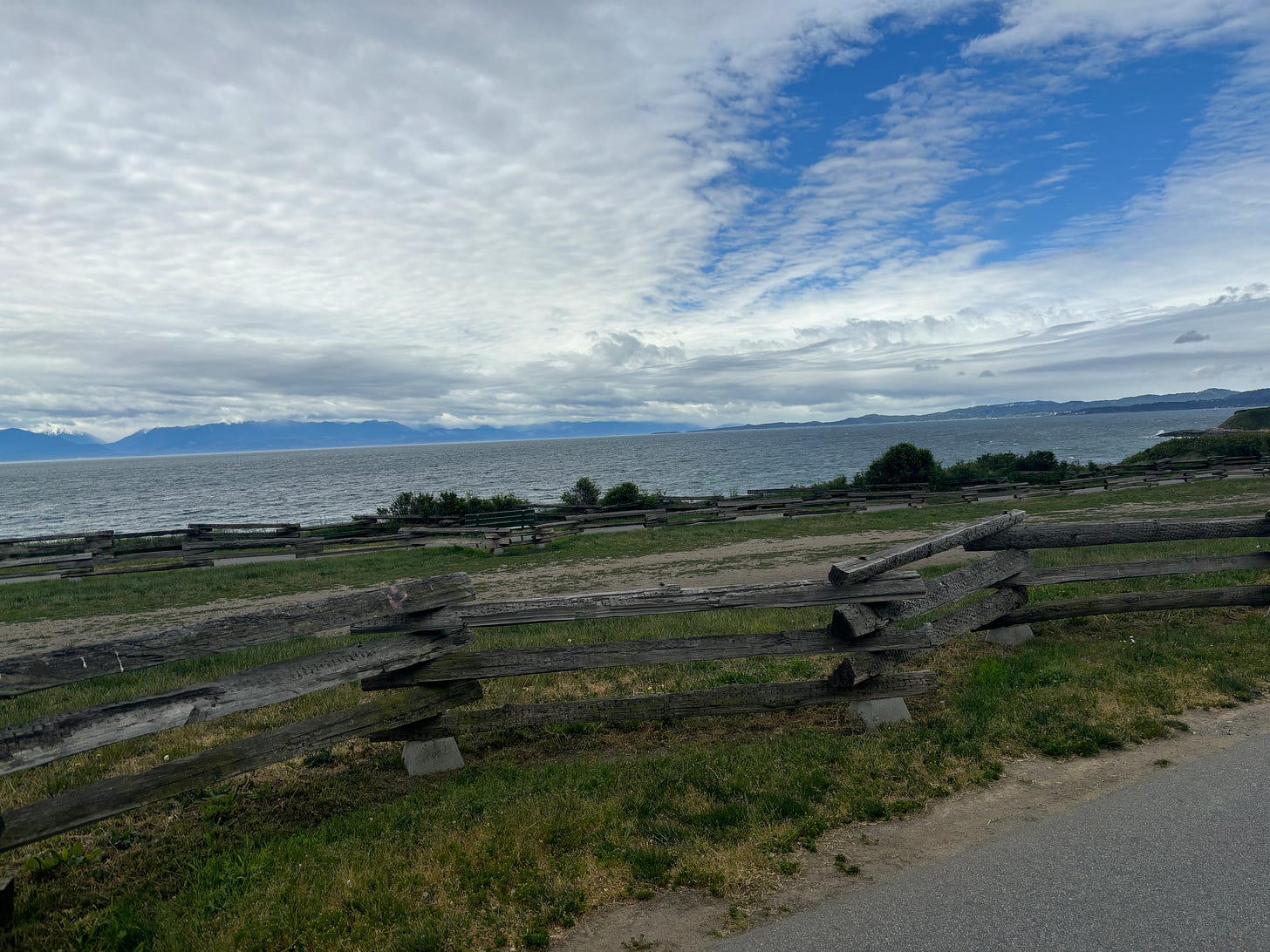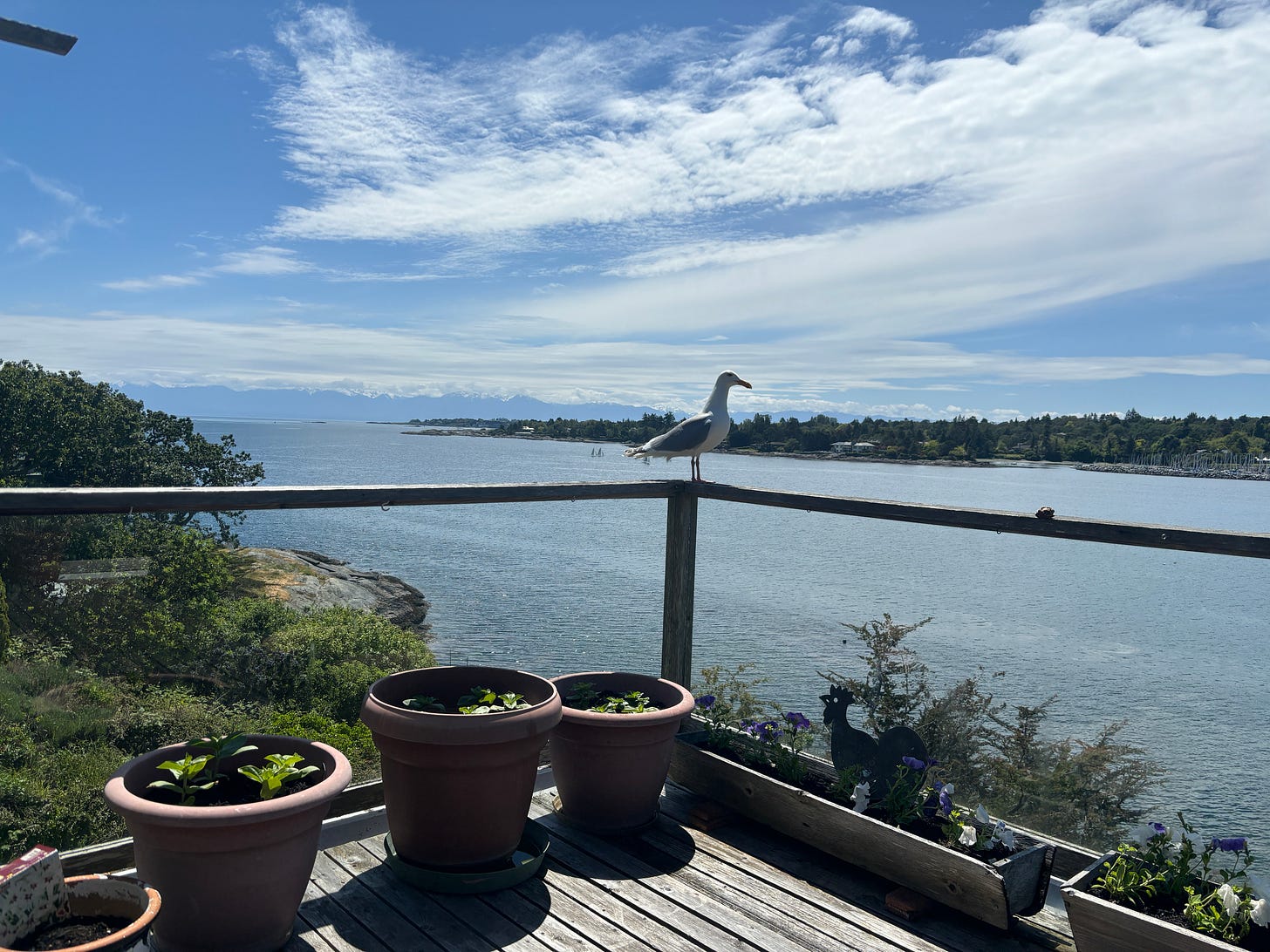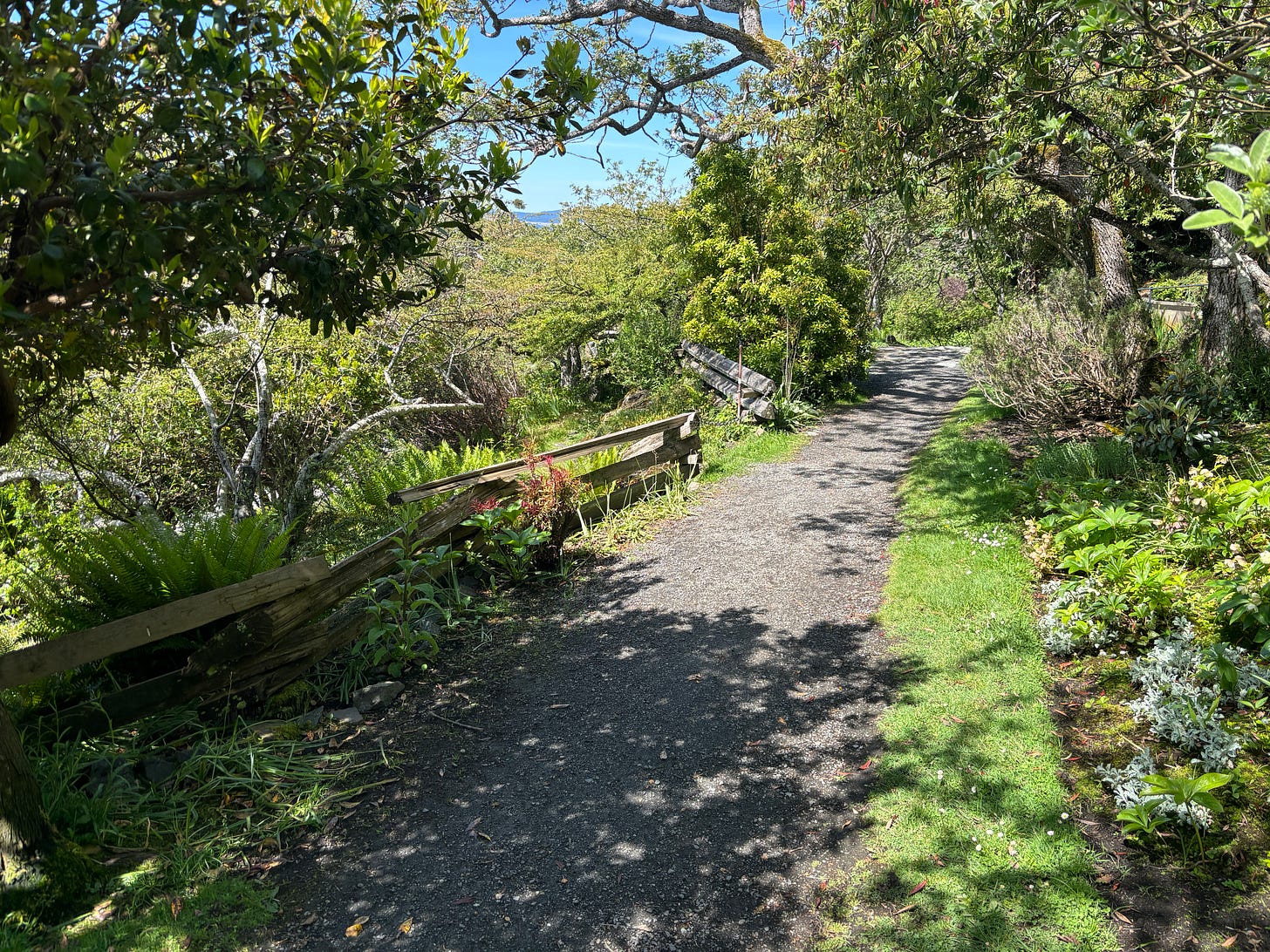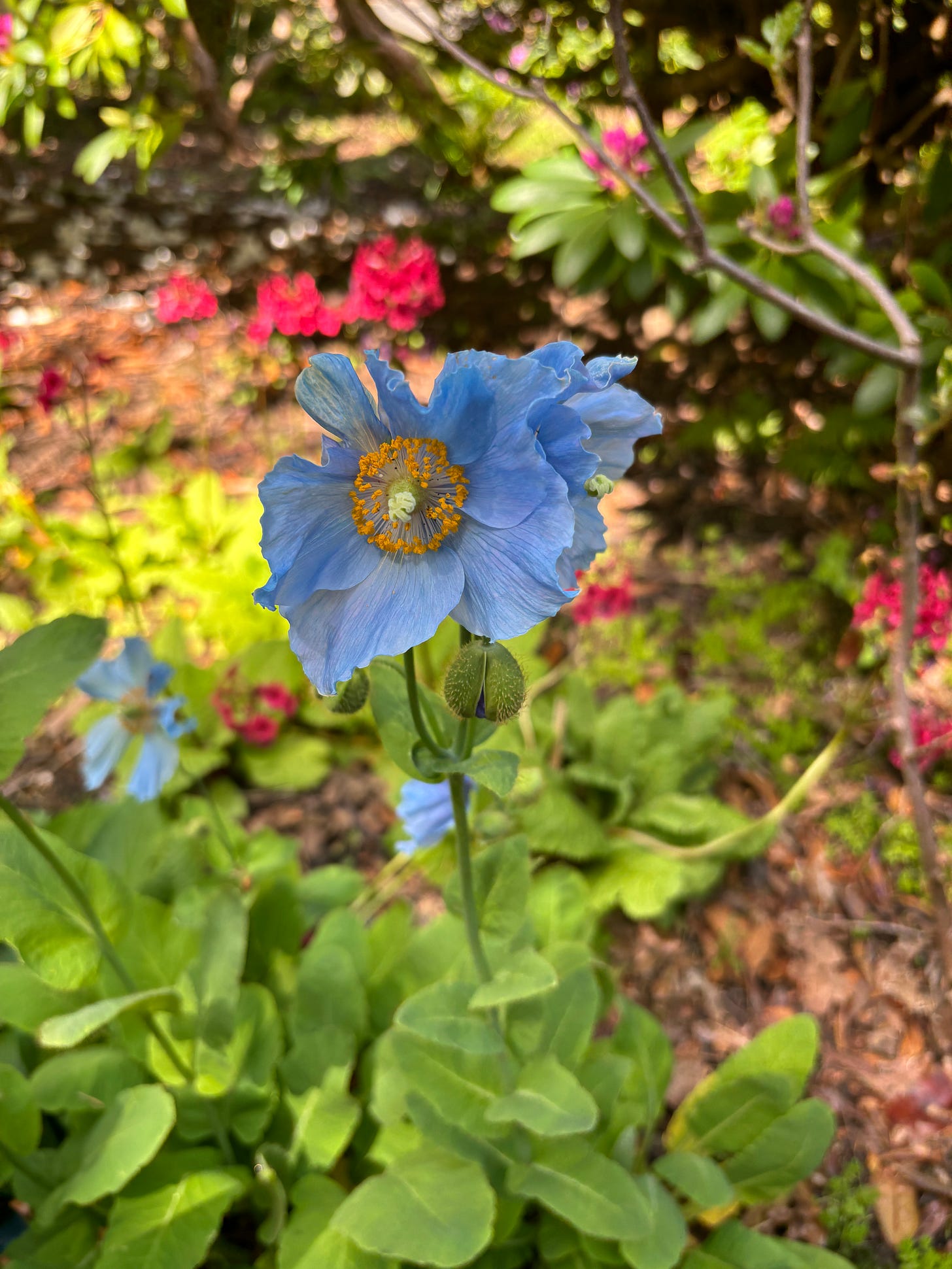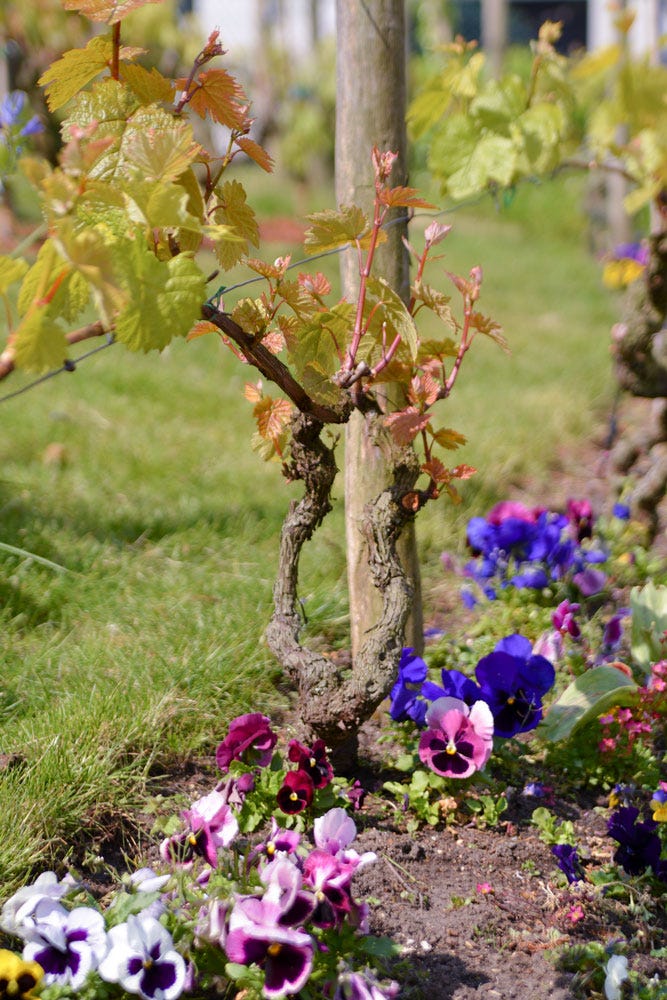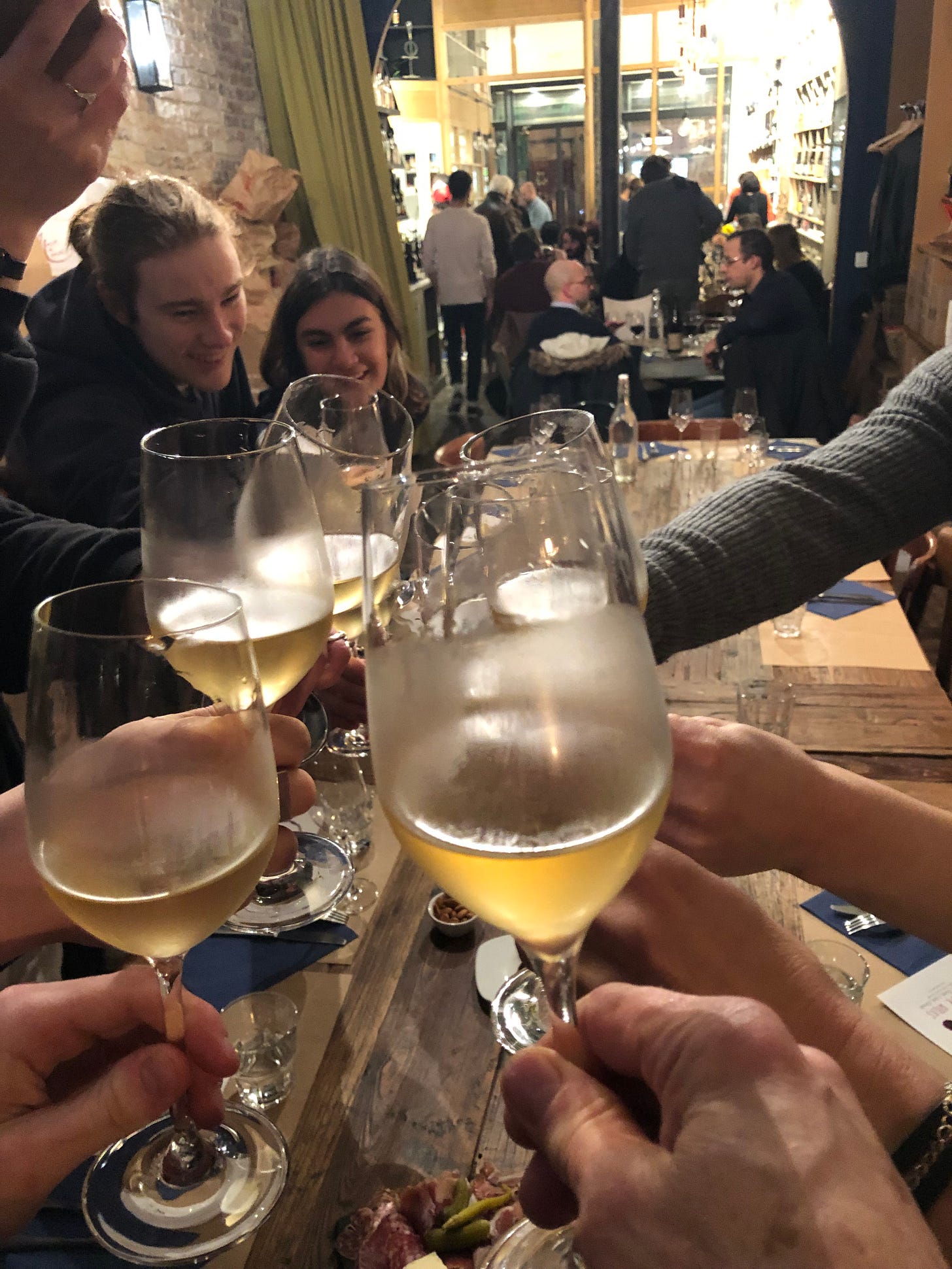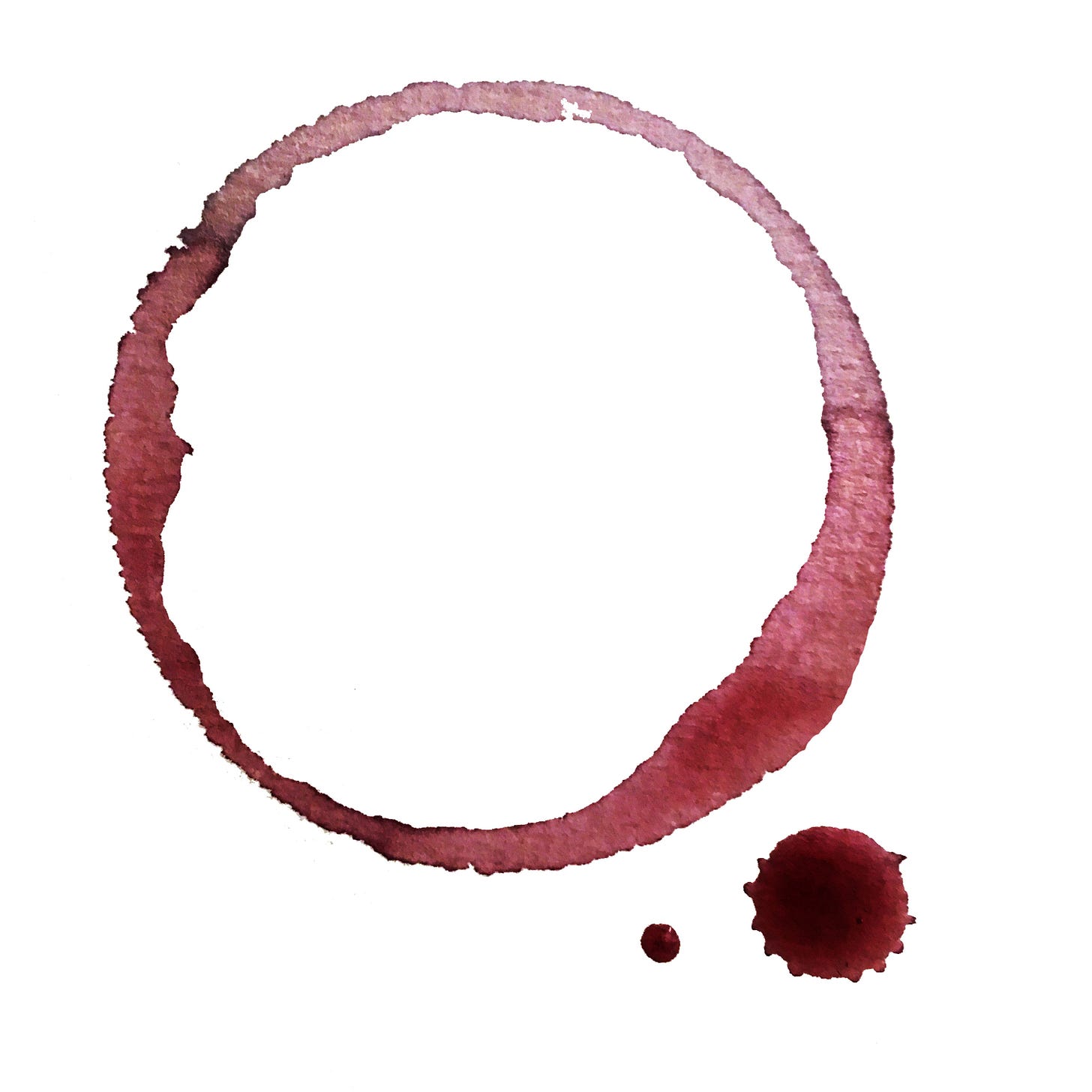I’m still on the west coast of Canada, and so posting at 11am Pacific Standard Time from a world that is very far from the world I inhabit in Paris. It’s peaceful here. It’s quiet, polite, and traditional. The city streets are empty at night. There’s not much going on.
The sea is everywhere around and every house has a garden with bushy trees and emerald lawns. Flowers are everywhere. My daily visits to my friend take me along Beach Drive past some of the most beautiful landscapes I know anywhere in the world. There are snow-capped mountains across the water and sail boats playing the winds. It’s refined, elegant, traditional, and a bit posh. It’s where I grew up.
People are very concerned about their health and being fit, and so are always out walking or running or doing something to stay in shape, so it’s not surprising that alcohol-free wines have become an accepted social norm. I imagine, like many other wine lovers, I hadn’t given them much thought, supposing they were another fad, like wine in cans (something else I have yet to address or take seriously). This is not to suggest I’m opposed to the idea of enjoying the complex flavours and aromas of a wine without the alcohol, as that would be quite welcome in certain contexts. But I am also not opposed to the spiritual uplift that I generally find in real, living wines that have been produced without artifice or poison.
The beguiling alchemy of fermentation (especially when it comes to the transformation of grape juice into wine) is still a mystery that science, for all its thoroughness and application, has yet to properly explain. The alcohol content of wine, which is a direct result of this fermentation, is a very significant part of the experience, but is nothing without the complex organoleptic spectrum of aromas and tastes that wines are capable of expressing.
Circumstances that have already been referred to in the post previous to this one have lead me to explore this still nascent departure from what has been traditionally known as ‘wine’. And as much as I would love to be able to say that the few I’ve tasted were worth the time and money, my disappointment has been pretty much total. For the most part, they have been insipid, watery, thin, lacking any real expression whatsoever and utterly denuded of ‘substance’, emotion, or countenance.
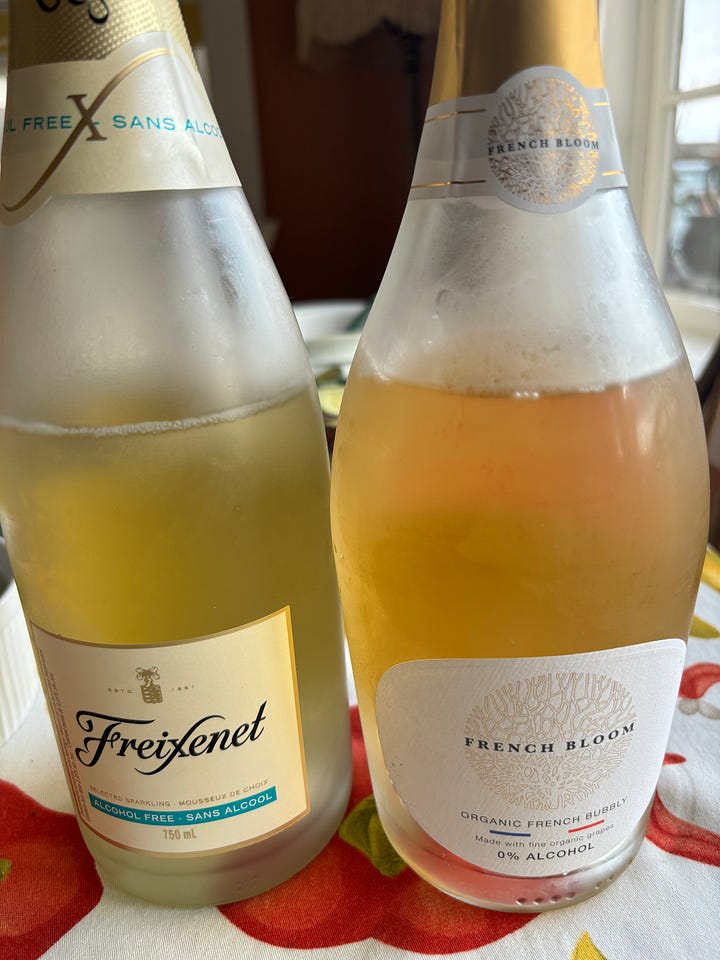
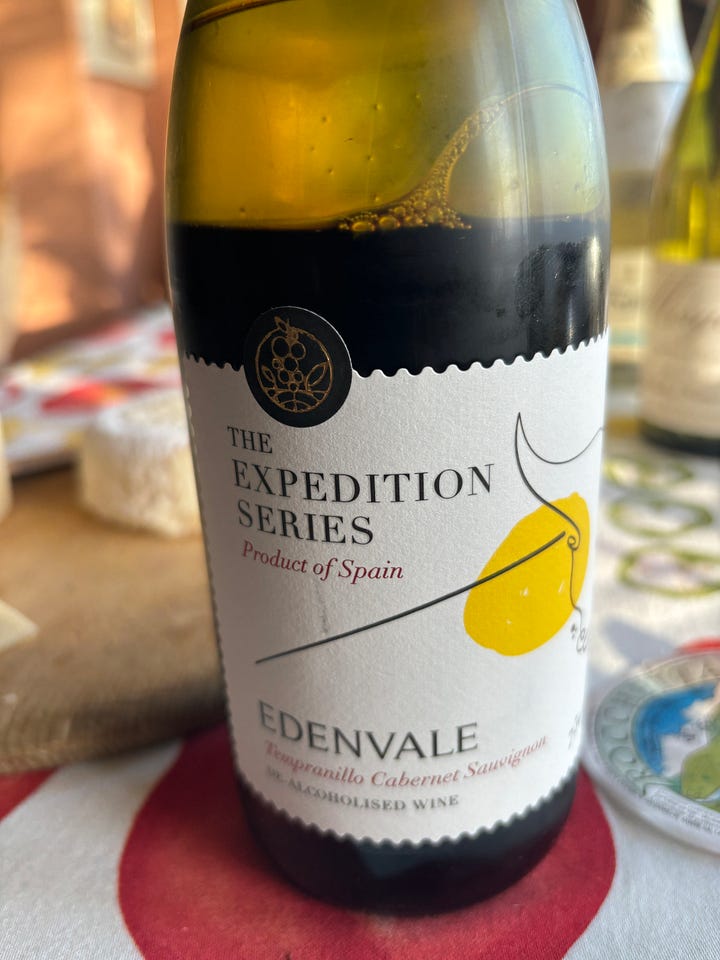
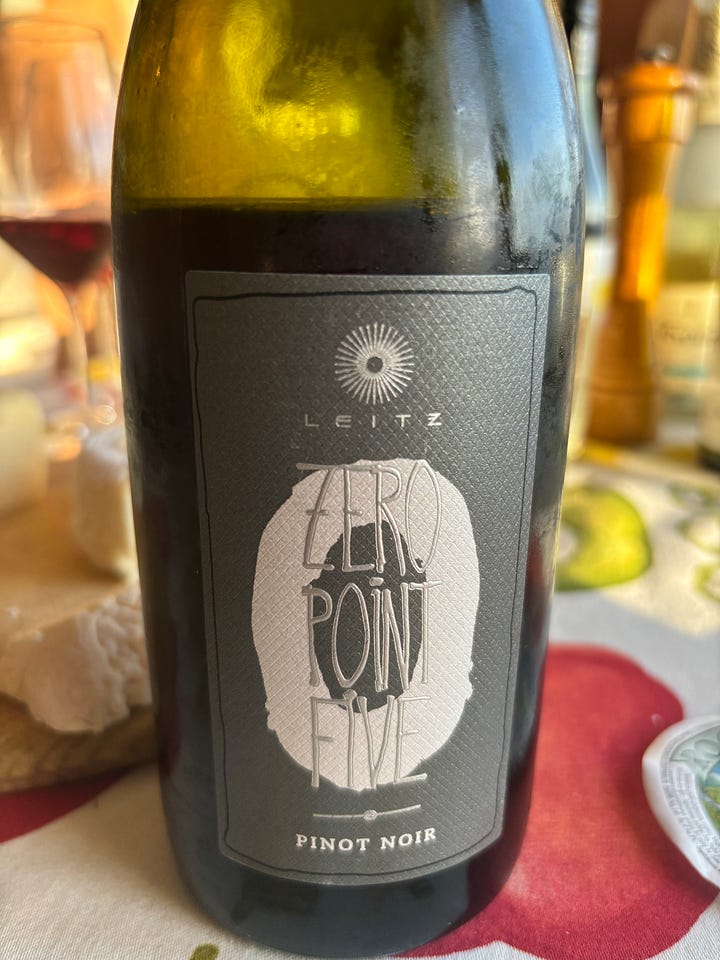
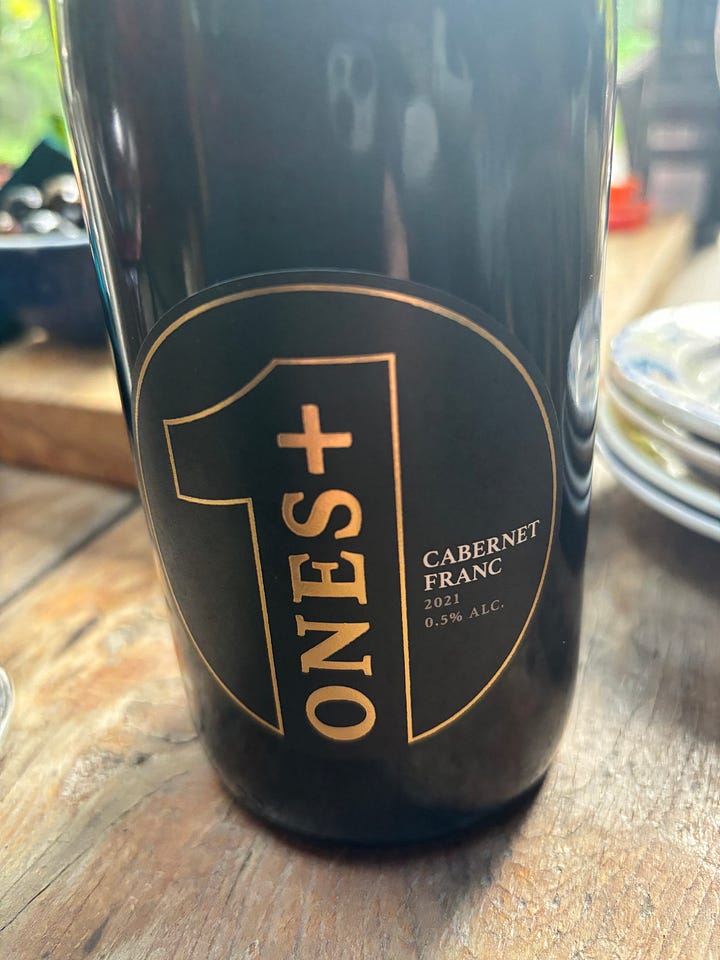
My star winemaker friend Aaron Pott in California, who has himself begun making alcohol-free wines, uses a process called ‘Bevzero’ that has a number of spinning cones in a vacuum column that initially sucks up the lightest molecules, which are aromatic (kept in a separate container) and then repeats the process to suck up whatever percentage of alcohol you would like to remove.
According to Decanter “Vacuum distillation sees alcohol and other volatiles removed at a relatively low temperature (25°C-30°C), with aromatics blended back in afterwards. Spinning cone columns are not dissimilar, but involve repeated low-temperature evaporation and condensation using inverted cones and centrifugal forces. They are swift and highly efficient in separating constituent elements, which are then blended back together. Both of these methods use expensive equipment. More affordable and mobile kit is available for reverse osmosis, a sophisticated cross-flow filtration system that separates out constituent elements based on different molecular sizes before blending back.”
The question I have is whether any of these processes allow the enchantments of real wine to be retained. Once you have tampered with the divine alchemy of a wine, can it still entrance us, seduce us, tingle our tastebuds and make us swoon with pleasure? Granted, that doesn’t always happen with real wine, but when it does happen, we are in the company of gods. Even mediocre wines that are real and well made can provide hints of the delightful. But with alcohol-free wine, I have been thoroughly underwhelmed and in most instances, frankly disenchanted.
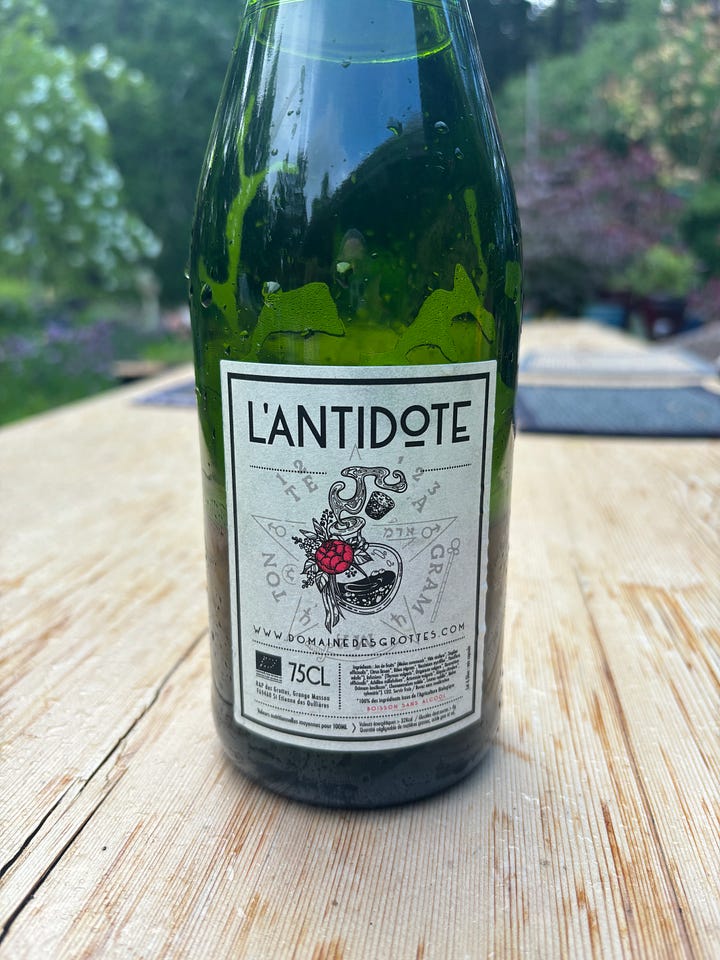
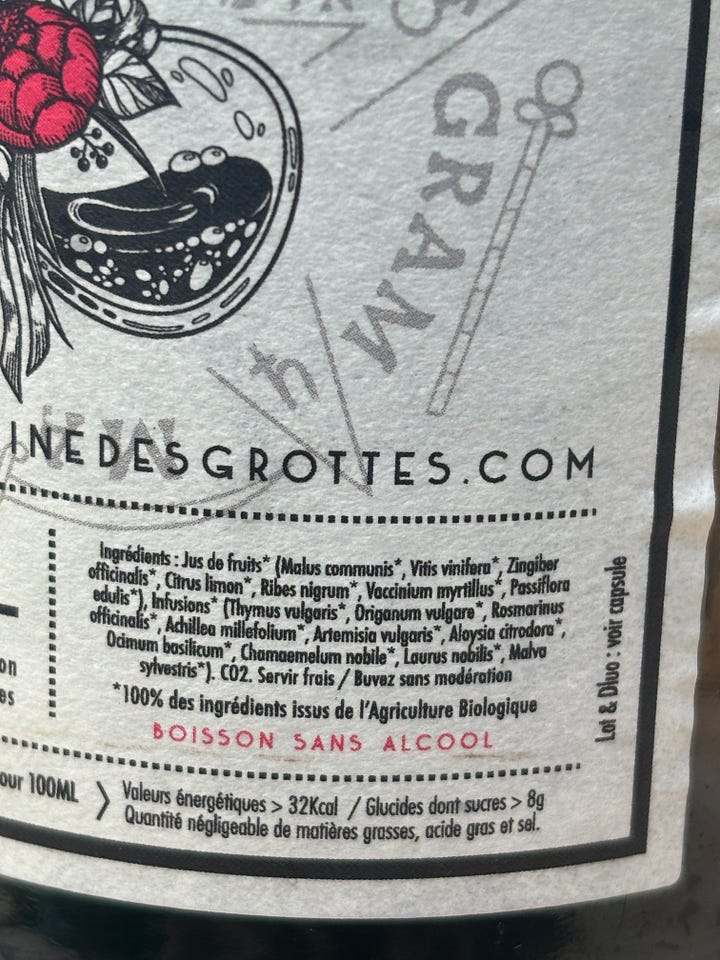
The only inspiring taste experience came from a bottle I picked up in a high-end grocery store, without reading the label. It wasn’t until we opened it that I realised it was made by Romain des Grottes in Beaujolais. I met Romain for the first time at least 10 years ago at a Demeter (biodynamic) tasting in Paris. I was about to leave and hadn’t yet tasted his wines, which were at a stand close to the exit. Hastening to leave for an appointment, I hesitated, and then thought, just one more, and ended up tasting everything. Romain’s wines are distinctive in their aromatic profiles and I was immediately struck by an effusion of herbs that conjured a medieval medicinal herb garden. Inquiring further, I learned that Romain is also a herbalist and has planted a broad range of medicinal plants among his vines. This was the first time I’d noted the vine’s capacity to absorb and reflect the aromas of other plants.
L’Antidote, his alcohol-free elixir, is a perfect example of this herbal bouquet. A translation of the list of Latin ingredients includes: the juice of apple, grapes, ginger, lemon, black current, European blueberry, and passion fruit, along with infusions of thyme, oregano, rosemary, yarrow, mugwort, lemon beebrush, basil, Roman chamomile, bay leaf, and common mallow with added CO2. But is it wine… ?
Thank you for letting me into your world and for reading the Paris Wine Walks Substack. Your support is invaluable as are your comments, suggestions, critiques, dreams, thoughts and remembrances. A little encouragement goes a long way, so please consider a paid subscription, which need cost no more than (a cheap) glass of wine per week. Or, book a wine walk!
My book, ‘The Hidden Vineyards of Paris’ (reviewed in Jancis Robinson’s wine blog, the Wine Economist and National Geographic Traveler UK) is available at ‘The Red Wheelbarrow Bookshop’ at 11 rue de Medicis, 75006 Paris. If you haven’t yet discovered this gem of a bookshop, now’s your chance. Open every day!
Wine Walks!
For more information, click on the underlined links:
Sparkling Wine Splash!
Share a sparkling, convivial moment with colleagues, friends or clients to celebrate the moment or to simply gather for fun.
Clos Montmartre - Paris in Your Glass
Paris' most famous wine producing vineyard
Latin Quarter Unbottled!
An insider's journey to the oldest wine neighbourhood in the city
Belleville Unbottled!
A winebar crawl that features some of the best winebars in the city
Wine Your Way Through the Marais
The Marais seen through a wineglass
Saint-Germain-des-Prés
Discover the vinous spirit of medieval Paris
3-Vineyard Cycling Tour
A comprehensive overview of medieval Paris
Paris Bottled!
Short on time? This one’s for you.




